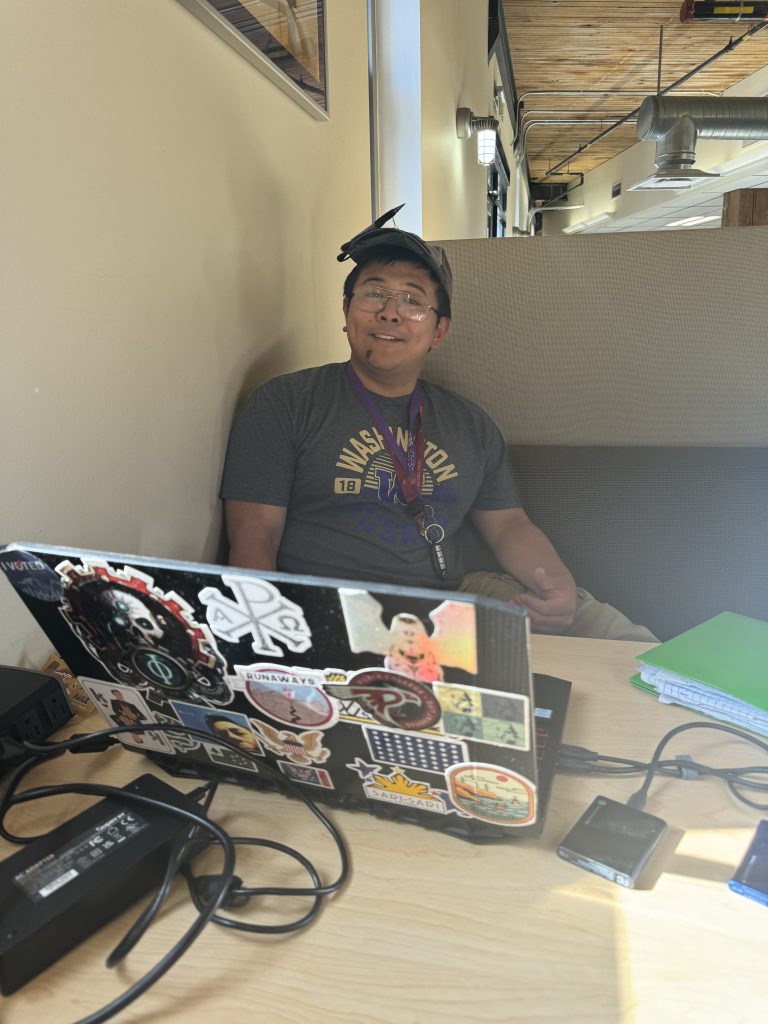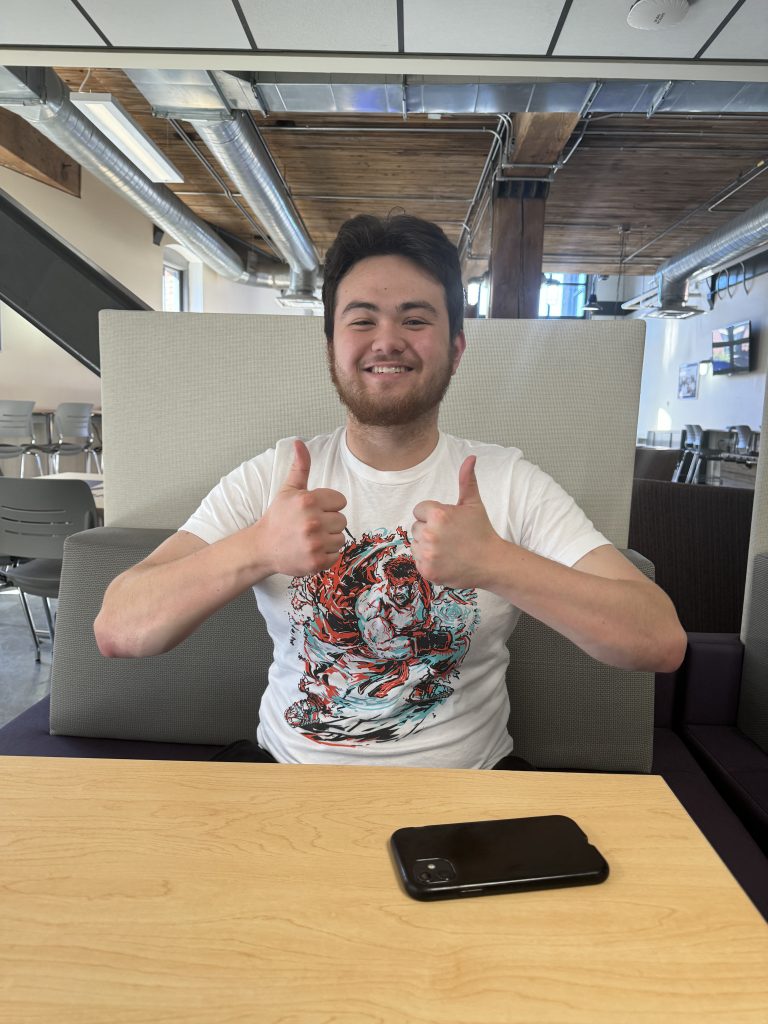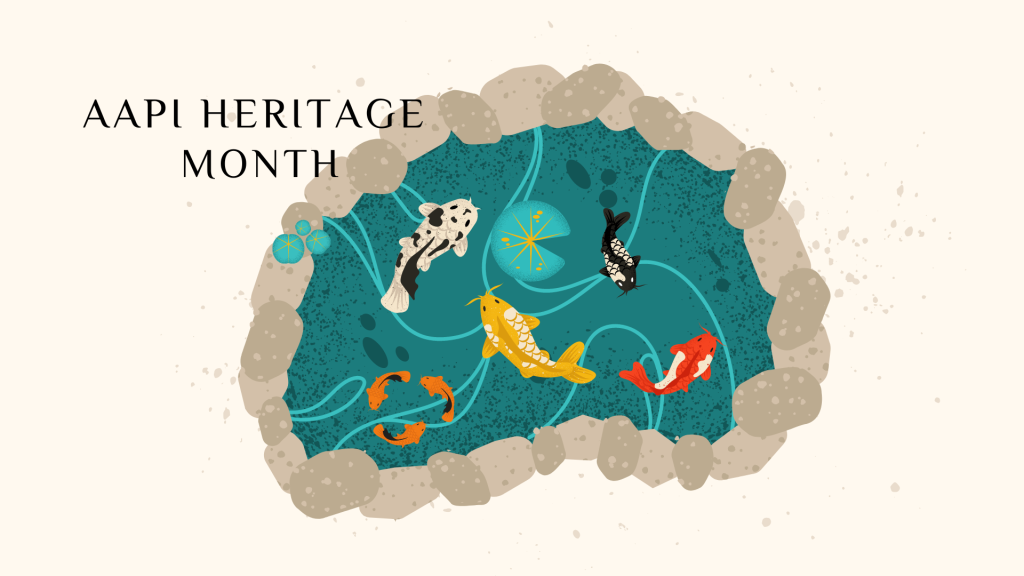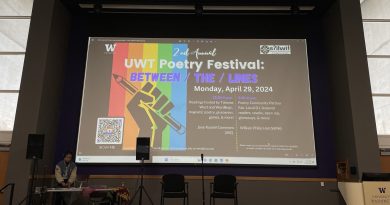AAPI students reflect on their personal and cultural experiences for AAPI Month
Students reflect on their experience growing up AAPI and the struggles that many go through finding their place in the world.
Asian American and Pacific Islander (AAPI) heritage month reflects the significant contributions and achievements made by these communities. It is inclusive to all who come from an AAPI background and is meant to raise awareness about the important cultural significance of these groups.
For AAPI heritage month, I decided to interview different students about their experience growing up as AAPI. Specifically, how it’s contributed to their self-identity and world outlook.
Sean Jahner, UWT senior studying psychology and Vice president of the Nintendo Smash Brothers Club.
Q. I feel like a lot of Asian American and Pacific Islander people grow up with a different experience than most people. Maybe they have a mom who’s from China who only speaks Chinese and makes Chinese food. That’s something that instantly already sets them apart. Did you grow up multicultural as a child?
A. Not really, I grew up pretty Americanized. I’m half Korean though so that’s a part of who I am. When I was younger, I attended a Korean church and learned to play the guitar. I also ate some Korean food. I have that experience related to my cultural heritage. Also, this is kind of funny, but my grandmother who was Korean would come over and cook ferns.
Q. The plant?
A. Yes, she would take the plant and leave it outside on the rooftop to dry out. Then she would cook it in a pot and eat it. That was really interesting to me.
Q. Did you mother ever speak about what life was like in Korea?
A. She’s told me some stories here and there about what it was like. Before she came to the U.S., she applied to a bunch of different schools and got accepted to UW Seattle. She’s an RN nurse and worked really hard to get to where she is now. There is that typical stereotype about Asians being super smart and great at everything academic-wise. My mom told me that’s kind of true in Korea because they have very high standards for students. Everyone works super hard to get to where they need to go.
Q. That makes sense. I know that stereotype is very common here. It makes me think of many Asian American students who struggle with figuring out who they are and where they belong. Have you ever struggled with something like that? Maybe not fitting in here and also not fitting in over there?
A. No, not really. I think I grew up with a very westernized upbringing. I’m half Korean so that’s a part of who I am and I’m very proud of that. But I never had any hard struggle of not fitting in personally.
Q. Good to know. Everyone’s experience is different, so I appreciate you sharing your story. Is there anything that you think UWT could do for AAPI?
A. I don’t think so. I feel like UW is really inclusive of different groups around here, so I think it’s doing just fine.
Alexander Alberto Filipino American born UWT junior studying civil engineering.
Q. As an Asian American, have you ever felt this tug between two worlds? Maybe not fitting in one part of your identity and the other?
A. I think there is a bit of a tug but not necessarily in a bad way. The American society as a whole has this idea of what is an American? When I’ve been asked about what my race, I just put down American. Like, I’m applying to Little Caesars, why does it matter? I think it’s normal to feel this push and pull. I think that naturally, people will end up on different parts of that spectrum of where they identify.
Q. Do you think that AAPI should put an emphasis on being Asian or Asian American?
A. It might sound like a cop out, but I really think it just depends on the person. I grew up Asian American but have cultural ties from my parent’s upbringing and where they come from. If you’re an American who has all your cultural ties in a different country, maybe you want to identify differently. I think it is completely dependent upon the person and how they feel.
Q. What struggles do you think that AAPI students deal with?
A. I think some Asian parents who are the typical Asian tiger moms will push their kids to do things that they don’t want to do. Those kids will struggle a lot and have to ask themselves, am I doing this because I want to do it or because someone else is pushing me to? That’s definitely a hardship that many Asian students deal with at home.
Q. Do you celebrate AAPI month? If so, what things do you do?

A. I don’t celebrate it myself but if there is an event on campus then I would attend. I actually think that celebrating cultural events to specific groups which already exist is more beneficial. Chinese New Year for example was created by Chinese people and truly reflects that culture.
Shella Vasquez, UWT senior and reporter for The Tacoma Ledger. She is half Filipino and half Honduran.
Q. What has been your experience growing up multicultural?
A. My personal experience plays a big part from how I look. It’s not just the cultures and customs but also how you are viewed by others. Sometimes I would visit Honduras but because of my skin color and facial features, people would associate me with Latina. They would say why are you trying to act Asian and wouldn’t believe that I was Asian. It would create this conflict in me of asking myself, am I Filipino? Or am I really Asian?
Q. It’s a weird dichotomy of not being Asian enough for these people or not American enough for the other people. There’s an idea, because you don’t look a certain way, that you will never be accepted into this group. What things do you think that we can do to change this stereotype and narrative of what it means to be Asian American?
A. I think raising awareness and deeper knowledge surrounding these topics is important. When people think about Asia, they might just think China. But there’s so many other cultures out there. For example, there’s a lot of different RSO’s who represent Asian backgrounds like the Filipino club or the Vietnamese Association club. I’ve personally never attended those meetings, but I know that anyone can join and become involved, which is really helpful to the bigger message. You don’t have to be Asian or look Asian to participate here. Being around different types of people can help educate each other.
Q. What things do you think could be done on campus to bring awareness about having these kinds of conversations?
A. I honestly feel like our campus does a really good job at representing Asian American and Pacific Islander people. We have a multitude of RSO’s and study abroad programs of different Asian countries students can travel to. I think they do a really good job of bringing awareness and having visibility to these areas of students. The only thing I can think of is maybe having a club for other Asian countries or even one club dedicated to representing all Asians. However, I think UW does a great job at making these people feel safe and welcome.

‘Featured Image’ AAPI Heritage Month poster. Created via Canva with designs from Sketchify Japan.






